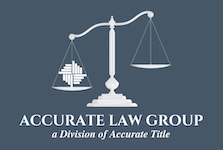A closing is a culmination of all the steps and paperwork in the home purchase process. It is the moment a purchaser receives keys and is recognized as the new owner of a piece of real estate. A closing agent manages the closing and has responsibilities prior to the closing date. This article details New Hampshire closing agent responsibilities.
Role of a Closing Agent
A closing agent is typically chosen by the lender to complete paperwork and other activities for a closing. The agent actually represents the mortgage company even though the home buyer is responsible for the fee. Some buyers elect to employ that same individual to review paperwork such as the Purchase and Sales Agreement on their behalf. However, they do have the right to find a separate attorney to act on their behalf.
Closing Agent Duties Prior to Closing
The closing agent is in charge of several duties required in a home transfer. The first task is a title search. This is an examination of public documents on the real estate to ensure that the title is acceptable to convey to a new owner. The second is compiling legal records for the property transfer and financing. Finally, they are required to also arrange settlement documents that outline the charges for all individuals in the agreement. Each of these helps lead to a successful closing.
The Actual Closing
The closing agent completes the actual closing by ensuring the paperwork is executed and funds are transferred. The buyer and seller are responsible for endorsing specific documents, although most need only the signature of the purchasers. Some documents are filed into public record while others are retained by the mortgage company. The other critical aspect of a closing is the exchange of money. All fees and calcualtions are noted in a settlement form provided to both buyer and seller. In most closings, funds are channeled from the lender to the closing agent for proper accounting.
New Hampshire Closing Agent Responsibilities
The official capacity of a closing agent usually starts with a title search, but may sometimes also involve review of paperwork such as condominium contracts or purchase contracts. It is important to remember that they act on behalf of the lender in the transaction no matter who is responsible for their fee. Buyers, Sellers, and real estate agents must all work closely with a closing agent to ensure a successful closing.

